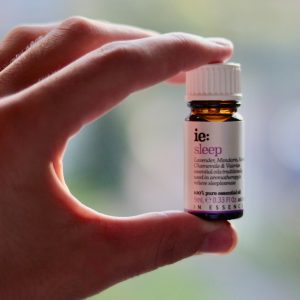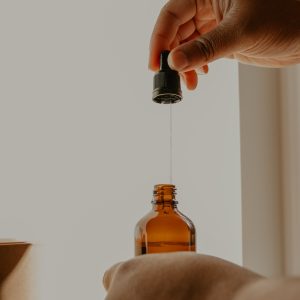Currently, there are more than 2.4 million men and women serving time in America’s jails and prisons. Of these 2.4 million inmates, it is estimated that 40% are managing chronic medical conditions; 40% are coping with mental health disorders; and 65% meet the medical criteria for substance abuse and addiction. Never has the need for qualified and capable healthcare providers that are willing to treat this vulnerable population been so evident. However, misguided assumptions about correctional healthcare prevents many clinicians from pursuing these job opportunities.
While not the right work environment for every clinician, the correctional healthcare setting can provide a rich and rewarding career for those nurses that are willing to put their preconceived notions to the test. To help combat some of the natural biases that surround the correctional healthcare vocation, we interviewed Chris McMahon, RN, BSN. As an experienced correctional nurse, Chris provides insight into what a typical day looks like in correctional healthcare, the type of care that correctional nurses are generally responsible for and what it takes to succeed in this non-traditional healthcare field.
While I was pursuing my bachelor’s degree at the University of Wisconsin-Parkside, I knew that I wanted to end up in a career where I would have the opportunity to help and care for other people. At the time, I didn’t know that nursing would be the place where I would land. As I was trying to decide on a major that was right for me, I took a very general class about nursing. From there, I was hooked. I had so many amazing teachers along the way that encouraged me. Their enthusiasm for the profession was contagious. I’ve never regretted my choice to become a nurse.
I was initially exposed to the correctional healthcare environment as part of a clinical rotation while earning my associate degree. I had the opportunity to spend six weeks at the Ethan Allen School for Boys, a correctional facility for juvenile offenders in Delafield, Wisconsin. I guess I was lucky. I had a really good experience there. One of the nurses at the facility took me under their wing and really showed me how I could make a positive difference in the lives of the patients. Just as the rotation was ending and I was getting ready to graduate, a position at the facility became available. I applied, was hired and the rest is history. I don’t think I would have pursued a job as a correctional nurse if I hadn’t had a positive experience on my clinical rotation first.
A typical day for a correctional nurse is both predictable and unpredictable. Within the facility, there is a steady rhythm and flow to life. For instance, head count (when inmates must return to their cell and be counted) and mealtimes occur at the same time every day. During these times, inmates are not allowed to schedule medical appointments. This means you have dedicated time slots throughout your day when you can focus on job responsibilities outside of patient care. It’s a nice balance.
While the structure and routine of each day is highly predictable, the type of care that you provide as a correctional nurse changes from day-to-day. Without a doubt, you will have inmates that need regular treatments for chronic medical conditions. However, just like in regular life, medical emergencies happen that require your immediate attention. As the primary care provider within the facility, these patients will come to you first for assessment and next steps. These emergencies require you to be flexible and to think on your feet.
As a correctional nurse, you have the opportunity to see and treat the spectrum of medical conditions. From dermatological issues to emergent conditions, you will be the first person the inmate sees for treatment. Furthermore, you will be the one who decides if the inmate needs to be taken to a specialist for additional care. While the care you provide will always be performed in consultation with a physician, you will have a lot of autonomy in deciding how that treatment plan is carried out and when/if next steps need to be taken.
One aspect of being a correctional nurse that I especially enjoy is the opportunity to teach my patients everyday medical skills. For instance, I have had patients with diabetes that have not been able to control their blood sugars. Through my interactions with those patients, I have had the opportunity to educate them about proper food choices and the need for regular exercise. In my experience, these patients have been grateful for the knowledge that I have imparted. For some inmates, you will be the first medical professional that is consistently advocating for their wellbeing. You will have the opportunity to influence their relationship to health and medical care.
When it comes to patient interactions, there is no difference in how I treat an inmate from a regular patient. Everyone that comes to me for medical help is treated with dignity and respect. I think that’s the key to successful provider/patient interactions. Whether you’re working in a traditional healthcare setting or a correctional facility, you only get one chance to make a good first impression. If you come across as rude or condescending, your patient isn’t likely to follow your recommendations or be compliant with the treatment plan. If your goal is to help heal people, respect is the first step.
On the whole, I would describe my typical patient interactions as pretty positive. Inmates are coming to see the nurse because they want medical attention and advice. They are not being forced to come see you. As a result, they usually have a lot of questions. They want to learn about their condition and why their treatment plan is the right course of action. I find that a good portion of each of my interactions is spent on patient education. It’s especially rewarding to share what I know and watch a patient apply that knowledge for their health and betterment.
Generally speaking, as part of the on-boarding process, you will be required to go through basic safety training classes. For instance, you may be required to take a series of online classes about recognizing manipulation, how to effectively communicate, what fundamental safety procedures need to be followed, etc. Furthermore, the facility will likely send you offsite for additional hands-on training where you will learn how to deescalate confrontations and avoid hostile situations. While you are providing care, there will always be a guard within earshot to ensure that everyone is on their best behavior. In my experience, it is extremely rare for an inmate to attack the medical staff. Prisoners view the nurses and doctors at their facility as people that are there to help them, not punish them.
One of the toughest aspects of working as a correctional nurse is making sure that you are taking care of your mental and emotional health. For various reasons, the correctional healthcare environment can be very stressful. In order to do your job to the best of your ability, you will need to “check in with yourself.” If you find that you are not doing okay, that the stress is getting to you, you will need to reach out to your friends, family members or (possibly) a mental health professional to get yourself back on track. It’s important to remember that you can’t take care of others if you aren’t taking care of yourself.
I think that one of the biggest benefits that you get working as a correctional nurse is the autonomy that the job provides. While your work will always be performed in consultation with a physician, it is unlikely that a doctor will be on the facility’s grounds every day, advising you what to do in every scenario. Your patients are going to be relying on you to help them then and there. It is a terrific opportunity to use your nursing license and medical degree to its fullest.
Another great benefit of working as a correctional nurse is the opportunity to learn and expand your skill set. For instance, nurses that work in a hospital rarely have the opportunity to perform a thorough head-to-toe exam. Over time, their knowledge becomes highly specialized in one area. As a result, they don’t have the opportunity to see and treat as many conditions. In order to be effective, a correctional nurse must be willing to constantly learn and grow. Your patient’s health and wellbeing depends on you have a diverse knowledge base.
First and foremost, I would tell them that life within a prison or jail is nothing like what they see on television or in the movies. Those scenarios are dramatized to create entertainment value. Just like a traditional healthcare setting, you will have days that are long, boring and predictable and days when you wonder if there is something in the water. Regardless of what setting you work in, you still need to be flexible and compassionate.
Additionally, I would tell them that it is natural to have reservations about working in this field. However, they can easily overcome their concerns by having a conversation with a nurse that has or is working in a correctional environment. They will be able to speak to your specific questions and mentor you on how to be most effective.










